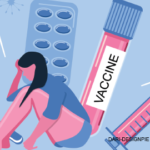NEW YORK (Reuters Health)—Patients with some inflammatory rheumatic conditions are at higher risk for hospital-diagnosed COVID-19 infection compared with the general population, but it depends on the condition and therapy used to treat it, according to a study from Spain.
It’s now clear that older patients and those with some common diseases are at increased risk for more severe COVID-19 disease, “but we did not know about patients with rheumatic diseases,” coauthor Dr. Jose Pablos of the Research Institute Hospital 12 de Octubre, Madrid, tells Reuters Health by email.
For their study, Dr. Pablos and colleagues used data from more than 26,000 patients being followed in hospital rheumatology departments for positive SARS-CoV-2 PCR tests and a reference population of 2.9 million adults.
Overall, patients with any rheumatic disease had 1.32-fold greater odds of hospital-diagnosed COVID-19 than the reference population (0.76% vs. 0.58%), the researchers report in Annals of the Rheumatic Diseases. However, not all diseases conferred the same risk.1
Patients with rheumatoid arthritis or psoriatic arthritis showed similar COVID-19 rates compared with the reference population despite their older age.
However, specific groups of inflammatory arthritis, including patients with spondyloarthritis (0.89%; odds ratio, 1.54) and those on targeted-synthetic and biologic disease-modifying antirheumatic drug therapy (0.94%; OR, 1.60) had higher rates of COVID-19. “This suggests that these specific immunomodulators may increase the risk for COVID-19, similarly as for other viral infections,” the authors report.
Conventional DMARDs did not seem to increase the risk of COVID-19.
COVID-19 prevalence was relatively low in patients with systemic lupus erythematosus (0.62%; OR, 1.07), despite an expected greater use of corticosteroids and immunosuppressants. A possible explanation is the frequent use of antimalarials, which may provide some protection, the researchers suggest.
The relatively low prevalence in SLE contrasts with the significant increase observed in all other autoimmune or immune-mediated inflammatory diseases (AI/IMID overall prevalence, 1.11%; OR, 1.92; AI/IMID non-SLE, 1.54%; OR, 2.69). Patients with polymyalgia rheumatica giant cell arteritis (PMR-CGA) also had an increased rate of COVID-19 (1.45%; OR, 2.53).
COVID-19 was associated with older age in some, but not all diagnostic groups.
Dr. Pablos says this information could help “tailor specific recommendations on COVID-19 to rheumatic patients. The mentioned groups [autoimmune, biologic therapy] are at higher risk to get more severe COVID-19 than the general population” and should adhere to general prevention measures and seek early medical care if they develop symptoms.
“Other groups of patients [lupus, arthritis on conventional therapy] should also know that they are not at increased risk. We also always recommend maintaining previous therapies to avoid worsening of the rheumatic disease that may also increase the risks for infections and many other complications,” says Dr. Pablos.



